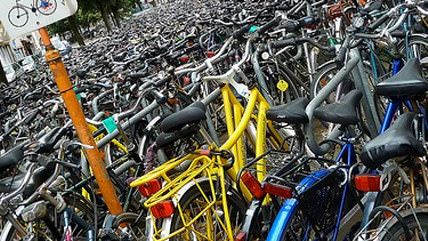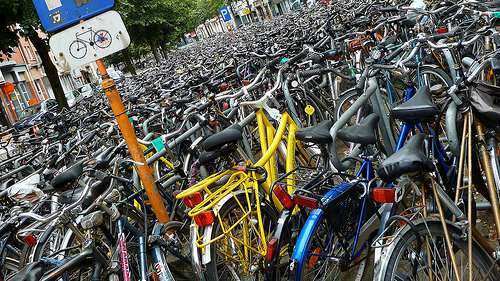What Does Government Do When People Start Living Healthier? Tax That, Too, Obviously.
Cyclists eyed as potential new revenue sources


When you tax something, you get less of it. It's a fundamental rule most creators of government economic policy know or at least claim to know. The rule has been used for Nanny State meddling for ages, piling on bigger taxes on disliked consumer goods like cigarettes, gasoline, and alcohol. The revenue can be used for good things, proponents say, like government programs to help children, the environment, and improve citizens' health.
There's an obvious flaw here – if the paternalistic nudging works, less money will be spent on the taxed goods, which then reduces the revenue for government programs (and the employees – both public and private – whose livelihoods have grown dependent on them) the taxes created in the first place. California has seen this in its children's programs funded by the state's cigarette taxes. California's gas taxes went from the second-highest in the country to the highest in the country entirely to make up for the loss of revenue caused by people buying less gas, an obvious and predictable outcome of having such high gas taxes.
So what happens when the government's grand Nanny State plan works and people start living the healthier, more environmentally friendly lives city and state functionaries want for us? Will they start scaling back all these programs funded by those now-redeemed sinners? No, don't be silly. They'll start looking for new ways to tax them. Several states and municipalities are looking for ways to drag revenue off of bicyclists. A Chicago City Council member proposed a $25 annual tax for cyclists. The Associated Press notes:
A city councilwoman's recent proposal to institute a $25 annual cycling tax set off a lively debate that eventually sputtered out after the city responded with a collective "Say what?" A number of gruff voices spoke in favor, feeding off motorists' antagonism toward what they deride as stop sign-running freeloaders. Bike-friendly bloggers retorted that maybe pedestrians ought to be charged a shoe tax to use the sidewalks.
"There'd be special bike cops pulling people over? Or cameras? What do you do (to enforce this)?" asked Mike Salvatore, owner of Heritage Bicycles, a new Chicago hangout that neatly blends a lively cafe with a custom bike-building workshop in a 19th-century building.
Chicago is by no means the only place across the U.S. tempted to see bicyclists as a possible new source of revenue, only to run into questions of fairness and enforceability. That is testing the vision of city leaders who are transforming urban expanses with bike lanes and other amenities in a quest for relevance, vitality and livability - with never enough funds.
Two or three states consider legislation each year for some type of cycling registration and tax - complete with decals or mini-license plates, National Conference of State Legislatures policy specialist Douglas Shinkle said. This year, it was Georgia, Oregon, Washington and Vermont. The Oregon legislation, which failed, would even have applied to children.
"I really think that legislators are just trying to be as creative as possible and as open to any sort of possibilities to fill in any funding gaps. Everything is on the table," he said.
Oops. If cities and states wanted more of this behavior and less of the "naughty" (imagine an army of scare quotes around that word), shouldn't they have prepared for declining revenue? Now that they've taken cars off the streets, how do they pay for the roads the bicyclists are using? Tax them, too, and watch as the Nanny State mask slips. The money was always more important than encouraging healthy living.
Tying infrastructure taxes to the citizens who use such infrastructure isn't itself a bad idea, but that doesn't seem to be the approach most governments are taking. The AP notes Colorado Springs has a special sales tax for bicycles that the community accepts as a way to help fund cycling projects. Other cities and states, though, seem to just be trying to get money.


Show Comments (75)